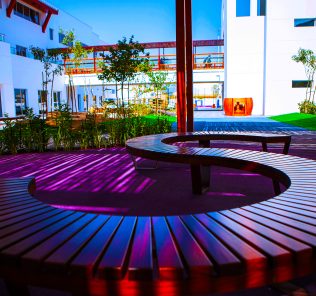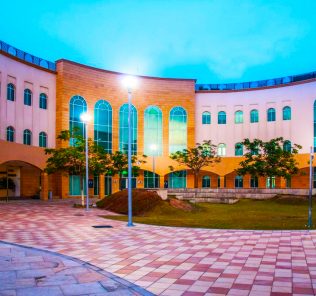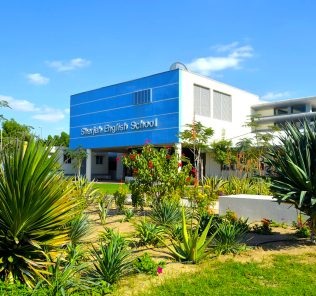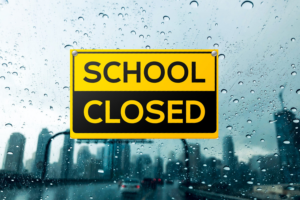Part 5: The Bottom Line on School and Curricular Choices at 16 – 18
If there is one single warning that all families should take from what is a hugely complex area it is that complacency at this critical time in a each child’s schooling should be avoided.
Gone are the days when it followed automatically that the best school for a child was always his, or her, existing school. Choosing the best school for a child’s 16 – 18 education is every bit as important a decision as choosing their first school. And with just a two-year period to secure the qualifications that will define the choices open to each young man and women, there are few chances to put right a wrong decision.
We have also, on balance, come down on the side of the fence that says that this is a really only a two horse race between British and IB schools for those seeking international educational opportunities, and want to enter a global workplace.
On balance, we believe for an average student, A Levels are a safer route than IB,
This is very different from saying British school Sixth Forms are better than their IB counterparts, that A Levels are intrinsically better than the Diploma or that BTEC (and eventual T Levels) are better than the International Baccalaureate Career-related Programme.
There are clear benefits to each – and each will better suit individual children. We cannot take the place of parents, and students, visiting individual schools, speaking with faculty and students – and getting a “feel’ for the fit, ambition, culture and spectrum of other qualities that define each and every school.
We do have some aspects of the equation that we think can be emphasised.
First, many schools focus specifically on their Sixth Form/16-18 Senior school offer. These schools are usually very well equipped to guide you and your child(ren) in both moving school – and in making the transition a happy one. Schools with a dedicated 16 – 18 culture, we think, regardless of curricular, have an edge.
Second, do not discount technical education. Both the BTEC and CRP are fabulous qualifications. Each has strengths – and BTEC is often the core of CRP programmes. If your child is not academic, technical programmes can build very strong foundations for either a career or university entry. Both open doors to Tier 1 universities and industry. Watching a non-academic child flounder in an academic school, and ultimately securing at best average grades in subjects in which they hold little interest, highlights the worst of schools. This is why we always advise parents to seek out schools offering the broadest array of academic and technical qualifications and subject choices.
Third, grades do matter, particularly in securing places at top universities. Just because a school secures a high number of top grades does not mean however, that it will for your son or daughter. A fully inclusive school focused on mixed ability teaching is likely to better serve the “average” child than a highly academic, selective one.
Fourth, the IB Diploma, for the right child, is unmatched by any other qualification in its breadth, richness and ambition.
We also believe that for a majority of children it provides more challenge to secure the necessary grades for university entry simply because weakness in a single subject can cost even the brightest child the opportunity to study at their first choice university.
The commitment too required by the IB will inevitably have impacts on life and interests outside school.
With students with a second language; for polymath, academic linguists not ready to specialise the IB is however recommended without qualification.
Our view of the IB CRP/CP is more nuanced. In many ways our view is that it is a better qualification than the Diploma. It combines many of the best features of the Diploma, adds the technical hands-on practical and real-world application of BTEC and loses the examination element of learning a second language.
A second language must be studied, but it can be done so at the student’s own pace – and for the love of learning it, rather than the worry of securing a grade. Again, however, this is a very demanding qualification with significant academic demands. For the non-academic child, whatever its benefits, we cannot recommend the CRP/CP over BTEC.
Finally, as important as the curriculum, is the choice of school. The responsibility of visiting schools and defining the fit of each school to each child is something that no Guide can replace, although both we and WhichSchoolAdvisor.com, through our reviews, can provide a head start by narrowing down your choices.
If this guide achieves nothing else, however, it will hopefully have encouraged a debate – and a recognition that moving schools at 16 for many children could transform their lives for the better.
Updated March 2017
Prospective parents and students should note that this is the second part of a ten-part Guide to 16-18 education. Links to each part as they are published will be found below.
- The SchoolsCompared Guide to choosing 16+ Education in the UAE.
- To IB, A Level or the Alternatives: The SchoolsCompared Guide to the best Curricular for individual Students.
- Getting the Grades: The SchoolsCompared Guide to the Best Schools for Academic Results in The Emirates.
- Understanding what Universities are looking for: The SchoolsCompared Guide to Choosing the best Subjects for getting into Top Universities including Oxbridge and the Russel Group Universities.
- The SchoolsCompared UAE Sixth Form Guide to getting into Top US Universities including Yale and Harvard.
- The SchoolsCompared Guide to 16+ Options for non-academic Children and Options on Graduation.
- Going for Gold: The SchoolsCompared 16+ Guide to the Best Schools for Sportsmen and Women in the Emirates and the Career and Graduate Options that Follow.
- The SchoolsCompared Guide for studying Dance and Music in the UAE at 16+ and Getting into the Top Universities and Performing Arts Schools Worldwide.
- Not Just Academics: The SchoolsCompared Student and Parent Guide for What to Expect at 16+, What the Best “Whole Child” education looks like in Practice – and Why it Matters.
- To Stay or Go? The SchoolsCompared Parents Guide to Staying in the UAE or Moving Overseas for 16+ Study.










































































Leave a Response